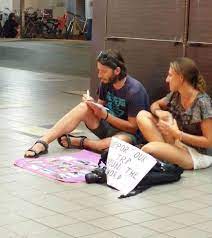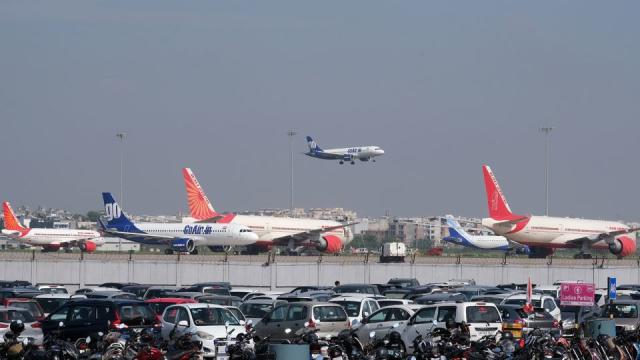Ashley James, a Hong Kong resident and comedian, noticed the presence of “begpackers” in his city in the spring of 2023. He had two thoughts at the time: leisure tourism had returned to Asia, and it was an opportunity to create memes about it.
As one of the contributors to the Instagram page “Chaotic Hong Kong Expats,” James shared a photo of a tourist sitting on a busy road with a cup of change and a sign, accompanied by the caption “nature is healing, begpackers are back.”
If you’ve ever come across a young person with shaggy hair selling woven bracelets or playing drums near a tourist spot, you’re likely familiar with the concept of begpacking. It refers to individuals who ask the public for money to fund their travels and is often associated with negative connotations.

Typically, popular destinations for these begpackers include countries like Thailand, India, and Indonesia in Southeast and South Asia. However, in most cases, this practice is illegal.
James describes the Instagram account as a platform where they mock various things. Interestingly, posts mocking begpackers tend to perform well on the page.
Stephen Pratt, the department chair of the Rosen College of Hospitality Management at the University of Central Florida, has extensively studied begpackers. During his time as a graduate student at Hong Kong Polytechnic, he and his colleagues conducted fieldwork, during which Pratt, as the only native English-speaking white male, volunteered to pose as a begpacker.
Equipped with a ukulele and a sign written in Chinese that said, “Please help me with my trip around the world,” Pratt stationed himself in a busy park in Hong Kong’s Kowloon district. A Cantonese-speaking colleague observed the interactions and later questioned the people who engaged with Pratt, occasionally returning the money they had given.

Pratt explains that begpackers can generally be categorized into three groups: those who busk or perform, those who sell items or services, and those who simply ask for money without offering anything in return. Passers-by respond differently based on which category the begpacker falls into.
During Pratt’s study, most people who gave him money mentioned his ukulele, even if his playing wasn’t exceptional. They appreciated the effort he put into his performance.
The origin of begpacking is unclear, but its prevalence has increased with the rise of social media, which has led to the emergence of begpacking-shaming accounts and pages on platforms like Instagram and Facebook.
According to Pratt, these online judgments suggest that travelers must meet certain economic standards before embarking on their adventures. It also reflects a broader culture of criticism.
Will Hatton, the founder of the budget travel advice site The Broke Backpacker, challenges the term “begpacker” and its negative connotations. While he disapproves of people sitting on the street begging, he believes that those who busk or sell items to afford more travel are individuals who are brave enough to explore alternative ways of living.

Joshua Bernstein, a lecturer at Thamassat University in Thailand, notes that some of the anger towards begpackers stems from issues of gentrification and privilege. He suggests that much of this outrage comes from foreigners, as he observed that locals in Bangkok were more interested in engaging with begpackers than foreigners were.
Bernstein also highlights that begpackers are not becoming wealthy. They typically stay in inexpensive hostels and consume street food rather than dining at Michelin-starred restaurants.
For James, the comedian, the disdain for begpackers boils down to one word: entitlement. He points out that Hong Kong is an expensive place to live, with high rent prices and many locals unable to afford basic accommodations. Therefore, the presence of begpackers asking locals to support their travels seems both foolish and entitled, considering that travel is a luxury worldwide.






